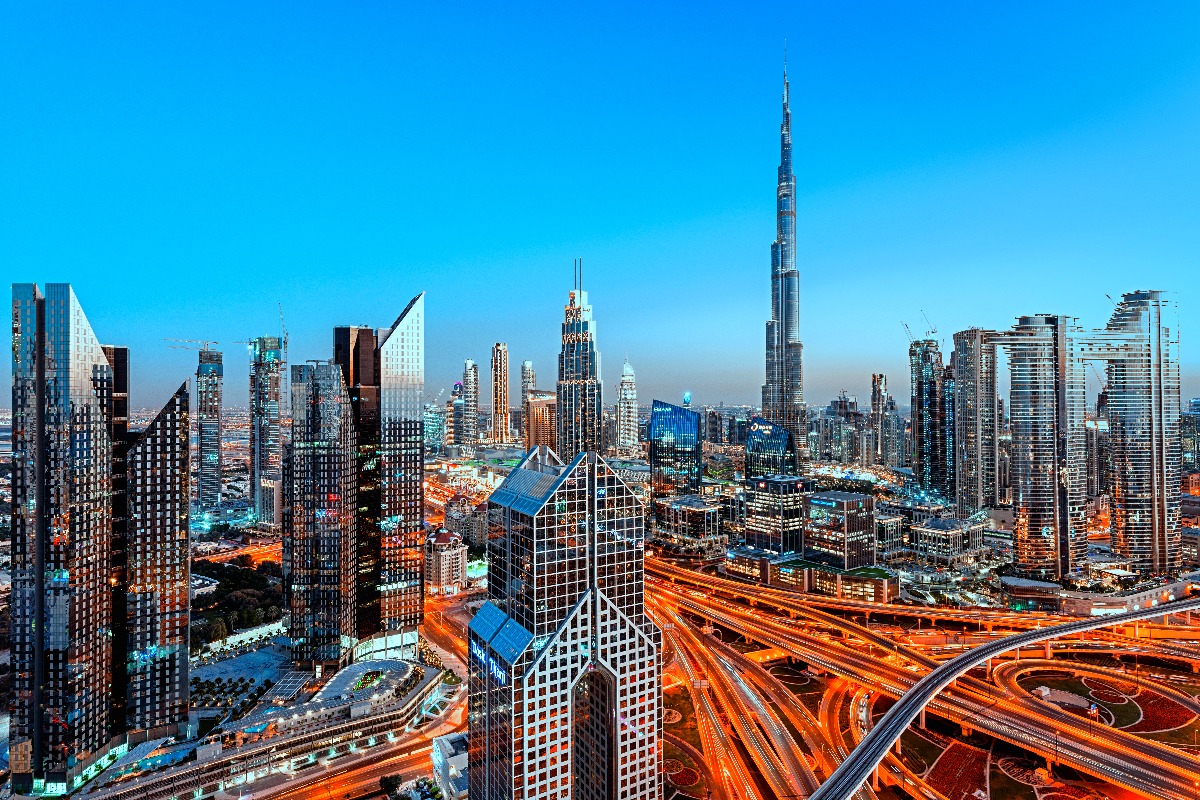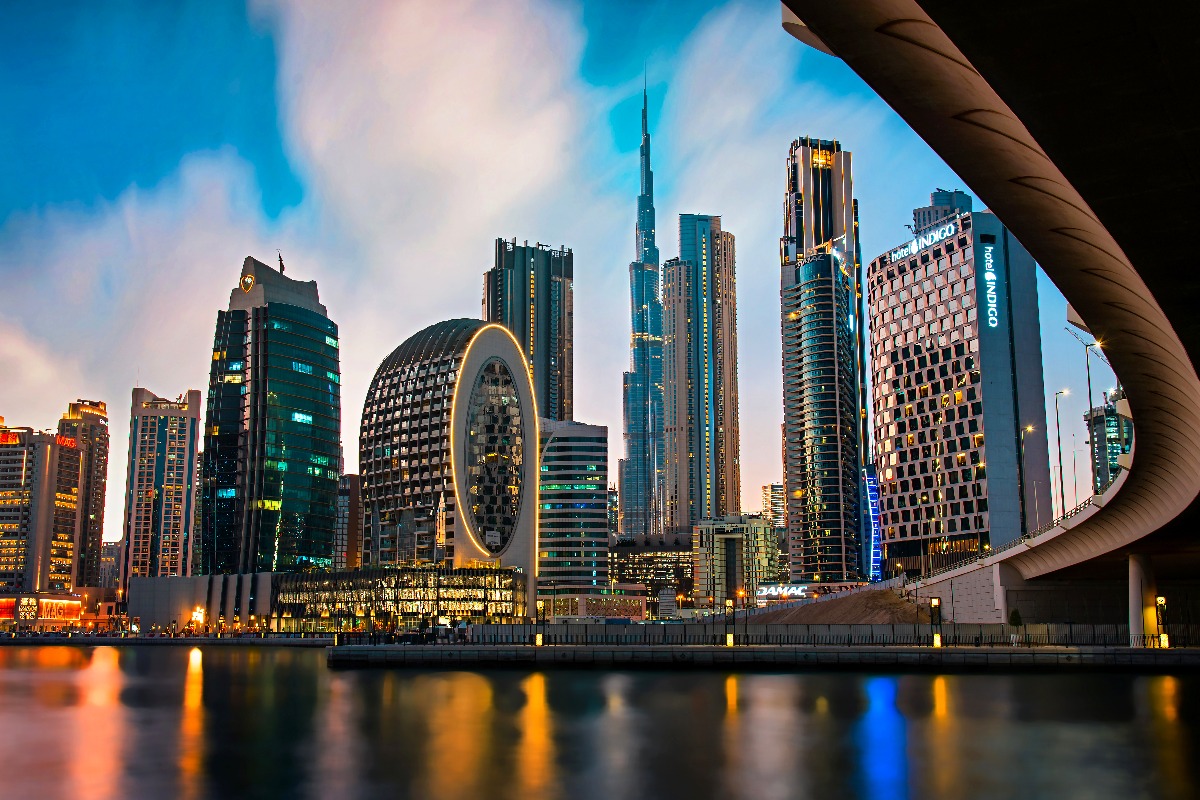
Dubai International Airport (DXB) is one of the busiest airports in the world. However, Dubai cannot offer the world as much as its prestigious ranking would justify. It is not located at the intersection of trade routes and there is no historical tradition of travelers turning up there. Yet, through clever politics and tactics, it has obtained a central role within a strikingly short period of time. It is particularly interesting that the emirate’s oil reserves are not inexhaustible. Consequently Dubai’s wealth and splendor cannot be attributed solely to oil. Indeed, if the city relied only on oil exports, not many people would know its name today. This is where the talents of the current monarch, Sheikh Rasheed al-Maktoum, Emir of Dubai come into play. The city and the emirate have been ruled by the Al-Maktoum dynasty since 1833.
If the city’s natural resources are not enough to provide enough wealth, they would have to find another solution. This could be one of the central ideas behind Dubai’s rise. The city in the desert and emirate is part of the United Arab Emirates, a federation of seven emirates whose capital and oil hub, Abu Dhabi, acts as a partner supporting Dubai’s particular role. An emirate that does not depend on Abu Dhabi’s oil resources for prosperity is always good news. Dubai can thus expand and spread its wings, as the Halifa clan that rules Abu Dhabi and the entire UAE are ready tohelp the city-state should they find themselves in dire straits.. They are also supporting Dubai in its efforts to make the city independent of oil. Accordingly, Dubai has started to implement projects such as sustainable development, environmental awareness, tourism and the development of the ICT sector. Urban development and Dubai’s policies have recently been determined by these branches and oil revenues account for only six percent of the emirate’s budget. It would seem that such projects are alien to a Middle Eastern metropolis, and yet, in Dubai, they seem appropriate and justified.

Huge skyscrapers, hair raising locations and extreme activities probably come to most people’s minds when they think of Dubai. The city-state has become associated with luxury and an affluent lifestyle because Dubai devotes a lot of resources to marketing. Promoting Dubai,a priority for tourism, has been spectacularly successful. This process culminated in the Dubai 2020 World Expo, which opened to the public in October 2021 due to the pandemic.
The Dubai World Expo was of historical importance for more reasons than boosting tourism as this was the first world expo held in the Middle East. The 438-hectare site did justice to the illustrious event. It was only desert eight years before, but was transformed into a small city fit for a sci-fi movie thanks to several billion dollars of investment and eight years of work
Dubai is a particularly good host for such a traditional exhibition because it is located at the crossroads of Europe, Asia, Africa and the Indian subcontinent,an intersectionof civilizations. Pavilions from 190 countries housed exhibitions demonstrating their scientific and cultural heritage. Sustainability was one of the priority themes.
“The government has taken the appropriate decisions in order to tackle the problems caused by the pandemic. We are leading the way in re-launching the world economy, building bridges in the world that will bring economic revival, especially in the area of aviation and tourism”, Head of the Dubai Civil Aviation Authority and CEO of Emirates Airline Ahmed bin Saeed Al-Maktoum stated in relation to the World Expo. The bridges in the statement are closely associated with the Expo. The result of a superhuman effort, the Expo allowed Dubai to once again attract the whole world defying the paralyzing effects of the pandemic.
We need to be reminded: one third of the world’s population can reach Dubai by a four-hour flight and two thirds in eight hours. Developing and unexploited markets are also accessible quickly and efficiently from Dubai, including India, the Middle East and Africa. Sheikh Rasheed al-Maktoum’s policy of encouraging investment attracts companies and investors to the city. Development and prosperity will come hand in hand.
The entrepreneurial climate in Dubai is very positive. Dubai ranks 22nd globally in starting new businesses. The tech sector is the second largest after oil. This is good for innovation, as new developments and inventions are constantly appearing in the dynamically growing industry of the city.. As Sheikh Rasheed Al-Maktoum acknowledged: while the huge wealth from oil reserves was required to build the super-city, this was no longer enough. The Sheikh called for change.
Understandably, one of the main objectives of urban development has become sustainability and building a metropolis of the future. Smart city initiatives are becoming increasingly widespread worldwide. This could be one of the trends that determines the future of the world. The bottom line is to create a smart city utilizing modern, usually digital,advanced technological skills. This concept embraces solutions that facilitate the everyday life of residents and the operation of the city through innovation. These include the plan to make Dubai’s bureaucracy completely paperless. Thanks to numerous smart urban innovations, the UN has recognized Dubai as a good example of how cities should be developed in the future. We need to remember, however, that building a smart city in the middle of the desert with billions of oil dollars is much simpler than transforming a centuries-old urban center into a smart city.

An enormous city cannot function efficiently without having excellent transport infrastructure. This is particularly true in Dubai, where the needs of the millions of tourists arriving in the city need to be met, not to mention the permanent residents of Dubai. Accordingly, Dubai offers a range of transport options including buses, taxis and a metro, which is considered one of the most cost-effective and state-of-the-art underground railways in the world. Even water taxis are available. Significantly, the environmental impact of these vehicles is monitored. The United Arab Emirates is the first major oil exporter that has targeted carbon neutrality by 2050. Dubai has been notably active in decarbonization in recent years, endeavoring to replace old taxis and buses with electric vehicles. All airport transfer taxis are fully electric thanks to government subsidies.
Even though Dubai is part of Arab and Islamic culture, alcohol consumption is permitted because of tourism and also because 89% of the city’s population come from outside Dubai. The secret of the miracle of Dubai is that the emirate has managed to attract thousands of tourists or more importantly to entice a vast number of companies to the city despite its initially negligible real economic performance. The influx of visitors and the movement of entrepreneurs to new markets has made Dubai a true commercial center. Some say that the essence of Dubai at the outset was that the emirate had built a beautiful theater in the middle of nowhere, with the actors playing their parts so well that the play finally became real.
This article was originally published in our Hungarian-language magazine Eurázsia in December 2022.